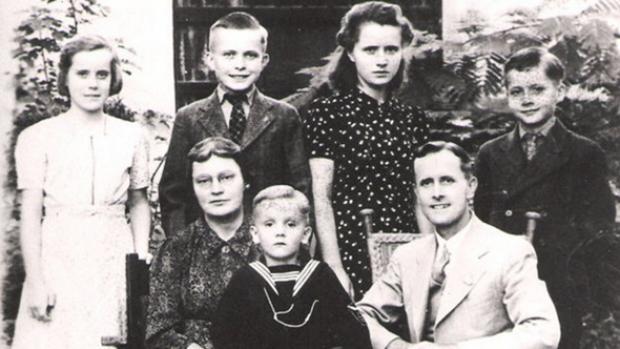During the 70th Anniversary of the Victory of the World Anti-Fascist War, the British Broadcasting Corporation (BBC) published Mary Previte's experiences in Weihsien Internment Camp as well as her life after being rescued from captivity by the Japanese Forces during the Second World War. Mary Previte is the great-granddaughter of James Hudson Taylor, a British missionary in China.
James Hudson Taylor is the founder of the China Inland Mission, a Christian missionary institution in China in 1865. He also founded the Chefoo School(China Inland Mission School) in 1879 located at Yantai City, Shandong Province with the primary aim of providing education to the children of foreign missionaries living in the country. The school was divided into two parts: the Primary School Department and the Middle School Department. It has also gained the reputation of being the best school throughout the region in terms of English courses and instructions.
Mary and her parents had been living in China even before the WWII. Both of her parents were Christian missionaries who worked for the China Inland Mission. They also opened a Bible school in Kaifeng City, Henan Province. When Japan first invaded China, the Japanese Forces didn't bothered the westerners there so that her parents decided to remain in the province. But they sent their four children to Chefoo School in Yantai City, Shandong Province as a precautionary measure.
In December of 1941, after the attack of the Imperial Japanese Navy on Pearl Harbor, the Pacific War started. With the declaration of war against Japan by western countries like the UK and the USA, the westerners living in China, including Mary's family had become Japan's enemy aliens. Japan then established some internment camps in WeiHsien of Shandong Province (today known as Weifang City), Shanghai and Hong Kong to imprison and make the westerners be held in captivity.
Just one day after the Pearl Harbor attack, Japanese Forces invaded the Chefoo School (where Mary and her siblings are) and declared control over the place. Mary, just 9 years old then together with her siblings became prisoners. After almost a year, 300 prisoners including students, teachers and Mary and her siblings were transferred from Chefoo School into Yuhuangding Presbyterian Church-- one of the internment camps put up by the Japanese Forces within Yantai. In the summer of 1943, they were again transferred to Le Dao Yuan Internment Camp in WeiHsien.
Mary vividly remembers how the teachers taught their students through games and plays within the internment camp. She describes their brave movements as "beautiful triumphs". Despite being deprived and deficient of good nutrition, three batches of students were able to graduate and the teachers being even able to stick to the strict standards of the Oxford.
In A Song of Salvation at Weihsien Prison Camp, Mary tells their experiences in a detailed manner. For instance, she retold the celebration of a Catholic Mass every Sunday morning followed by a worship of Holy Catholic Church and a worship of United Church of Christ at 11:00 am. During the night, they have Evening prayers which usually focus on hymns. On Easter, they start the celebration very early in the morning (usually at dawn
through worships and different kinds of performances. Throughout their stay in the prison camp, the church never ran out of presentations and activities making the prisoners joyful and oblivious of their sad plight even just for some time.
On Aug. 17th, 1945, almost four years since their imprisonment, a B24 airplane sent by the Headquarter American Army Forces in China stopped over the prison camp in WeiHsien. Seven paratroopers jumped off into the camp and liberated the prisoners there including Mary and her three other siblings. A couple of weeks later, Mary and her siblings were flown to Xi'an and reunited with their parents after five years of separation.
According to the piece of writing post by BBC, in the 1990s, Mary spent two years searching for the US soldiers who helped liberate them from the Weihsine Interment Camp. She even tried reaching out to the families of the soldiers but to no avail. Mary also tried to find the Chinese translator who guided the soldiers towards the prison camp. After a few months since Mary's story was published, a Chinese student studying in the US read her story and realized that the missing translator, Eddie Wang, happened to be his grandfather. He got in touch with Mary, who was then finally able to have an emotional telephone call with the 90-year-old Mr. Wang in China. Many years have passed since the end of the World War 2. However, the experiences will stay with Mary and all the rest of the captives for a lifetime. Moreover, this piece of history will remind us of the importance of safeguarding peace.














